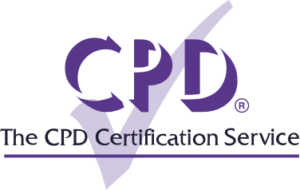In this Further Education Lecturers CPD Guide
Why do Further Education Lecturers need CPD?

A further education lecturer is an educator who teaches in further education, which is the education provided to students aged 16 and above. They teach a variety of subjects and courses, including vocational and academic qualifications.
A further education lecturer typically needs a deep understanding of their subject matter, strong communication and interpersonal skills, the ability to design effective lesson plans and assessments, and the ability to engage and motivate students from diverse backgrounds. They should also be knowledgeable about the learning needs of learners and be able to use a variety of teaching techniques and technologies to support student learning. Additionally, they should be able to provide constructive feedback to students and be committed to their ongoing professional development.
What our customers have to say
Dan King
Mobilisation, Training & Performance Manager

Sophie Aiken
HR Manager

Harriet Lee
Retail Recruitment Manager

What CPD courses do Further Education Lecturers need?
There are many courses that we provide for further education lecturers that can help in all areas of the job.
We have listed some of these below:
Adolescent Mental Health Awareness – this course will explore the types of mental health problems and the signs of each of them. It will explore disorders and issues that are prominent in this age group and consider the negative coping patterns that adolescents may indulge in to deal with the feelings they’re experiencing. As a lecturer, you will learn how adolescents with mental health issues should be supported, as well as explore possible treatments, and investigate how a young person can be fully supported.
Time Management – as a further education lecturer you will be busy juggling the planning and delivering of lectures with marking tests and assignments. To help with this our Time Management course will help you to feel more in control of your time and stress levels.
Safer Recruitment in Education – in this course you will be introduced to safer recruitment in education including what it means and how it relates to safeguarding. You will consider why safer recruitment is important, who is at risk and where it applies.
Safeguarding in Further Education – this course will explain why safeguarding is important, the relevant legislation, policies that apply, types of abuse students may encounter, as well as the signs and symptoms of abuse. These are all of the safeguarding responsibilities your further education role will come with.
Prevent and Radicalisation – this course will explore what Prevent is – the government’s strategy to tackle radicalisation – what it covers and how to work to prevent the risk of someone being radicalised. Through the units, students will explore various case studies and learn the skills needed to prevent young and vulnerable people from being radicalised.
Mental Health Awareness for Teachers – it has been recognised for some time that the teaching profession is stressful. It is important to realise that teachers’ mental health has an effect not only on them but also on their teaching as well as their engagement with students and colleagues. This course will look at the impact mental health issues have on teachers, their work and on others around them. You will also learn a toolkit that teachers can use to help them maintain positive mental health.
LGBTQ+ Awareness – in this course you will learn the importance of language and terminology in relation to minority groups and how the ways in which people are referred to and portrayed can have a significant impact on how they are perceived in society.
GDPR in Education – this course will cover everything you need to know about data protection in education, including the role of a Data Protection Officer and the types of information that will be handled. You will also explore how your educational setting can ensure that they are GDPR compliant.
Equality and Diversity for Teachers – as a lecturer you will need to know what protected characteristics are under the Equality Act 2010, as you will have a responsibility to your students within your classroom and colleagues within your education setting. You will consider that if a person is discriminated against on the basis of any of the nine protected characteristics, then this is unlawful under the Equality Act 2010 and that not all unfair treatment is unlawful.
DSE Awareness – in this course we will be looking at the definition of DSE and the workstation, as well as the health risks that can be caused by spending extended periods of time using display equipment. We will look at the responsibilities of the employee which ties in with the Health & Safety at Work etc Act 1974, as well as the regulations and requirements when using DSE. Assessments on workstations will be explained, as well as how to plan the perfect environment to avoid stress and strain on DSE users. Finally, it will also explain how users should adopt healthy postures and apply safe techniques.
Download our CPD trackerA guide to CPD for Further Education Lecturers
To become a further education lecturer, you typically need to have a relevant degree or vocational qualification in the subject you wish to teach, as well as a recognised teaching qualification such as a PGCE or CertEd. You may also need to gain some teaching experience, good communication and organisational skills before applying for a lecturer position./p>
CPD is important to further education lecturers because it helps them to keep up to date with the latest industry developments and changes in their field of expertise. This ensures that they are delivering the most relevant and accurate information to their students. It can help lecturers to improve their teaching skills, such as using new teaching methods and technologies, and adhering to regulatory rules (such as that of the Office for Students). This is necessary for lecturers to continue practising in their field.
CPD certificates
Our courses are all available to complete online and have been endorsed by the relevant regulatory bodies. This means that when you receive your CPD certificate, you can be sure that your course has high weighting in your industry. You will receive your CPD certificate when you complete any of the online courses with us. You will receive it as a downloadable copy for your immediate records as well as a hard copy version in the post.
Logging CPD hours
The hours that you spend working on your CPD should be logged so that you can create a CPD logged hours record. This is required in most industries to prove that you have spent a sufficient amount of time on CPD training. We advise that you keep either a hard copy record or an electronic copy of the dates and times that you work on your CPD training.
Keeping evidence
Your logged CPD hours can form part of your CPD evidence, as can your CPD certificate. However, there are many other activities that you may choose to embark on that can count towards your CPD training.
Some of these activities include:
- Attending conferences.
- Shadowing other work colleagues.
- Obtaining feedback from other members of staff in your field.
- Listening to podcasts.
- Working with a mentor.
It is important to keep evidence of your CPD in case your industry regulator or employer asks to see a copy of your CPD training.
Renewing CPD certificates
CPD certificates need to be renewed periodically in line with changes to laws, regulations, curriculums and safeguarding. To adhere to this, we advise that our students renew their CPD certificates at least every two years. At CPD Online College, we can send reminder emails when the renewal of your course is due to help you stay organised with it.
























